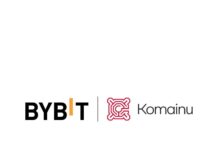
SEC executives are considering a sweeping crypto trading overhaul as calls grow for federal regulation, simplified innovation, and stronger investor protections.
The SEC Crypto Task Force Highlights Urgent Need for Reform of Trading Platforms
Policymakers, regulators, and industry representatives gathered in Washington, D.C., on April 11, as the U.S. Securities and Exchange Commission’s Crypto Task Force held its second session, titled “Between a Block and a Hard Place: Tailoring Regulation for Crypto Trading.” The Crypto Task Force is chaired by Commissioner Hester Peirce.
Acting SEC Chairman Mark T. Uyeda opened the discussion, highlighting the distinct yet overlapping challenges associated with overseeing the evolving crypto trading landscape. Uyeda drew historical parallels, noting that early U.S. securities markets developed organically, much like today’s cryptocurrency markets. He highlighted the inefficiencies of the current federal licensing framework for cryptocurrency platforms and suggested that a more coherent federal approach might be better suited to address technological innovation and investor protection.
Uyeda stated that current U.S. federal securities laws pose structural challenges to the integration of tokenized securities into mainstream trading, pointing to limitations such as restrictions on the listing of unregistered securities and complications in complying with market rules. He advocated for limited regulatory flexibility to allow for innovation, saying:
I encourage market participants developing new ways to trade securities using Blockchain technology to provide input where exemptions may be appropriate.
The acting SEC chairman added that blockchain has the potential to transform securities settlement and execution by streamlining operations, increasing liquidity, and enabling continuous trading.
Commissioner Caroline A. Crenshaw commented on the risks posed by crypto trading platforms for retail investors, particularly regarding the lack of clear custody and registration practices. She emphasized:
Crypto trading platforms are unique because, among other things, they often provide multiple services under one roof, sometimes including brokerage, clearing, and custody.
Crenshaw noted that these bundled services differ significantly from traditional financial structures, where functions are separated to minimize conflicts of interest. She expressed concerns that investors may misunderstand the safeguards in place and cited recent outages that revealed gaps in investor protection and regulatory coverage. Crenshaw urged participants to consider critical issues related to registration, execution standards, and custody risks in order to shape a responsible regulatory framework.
[newsletter_form lists="1"]










